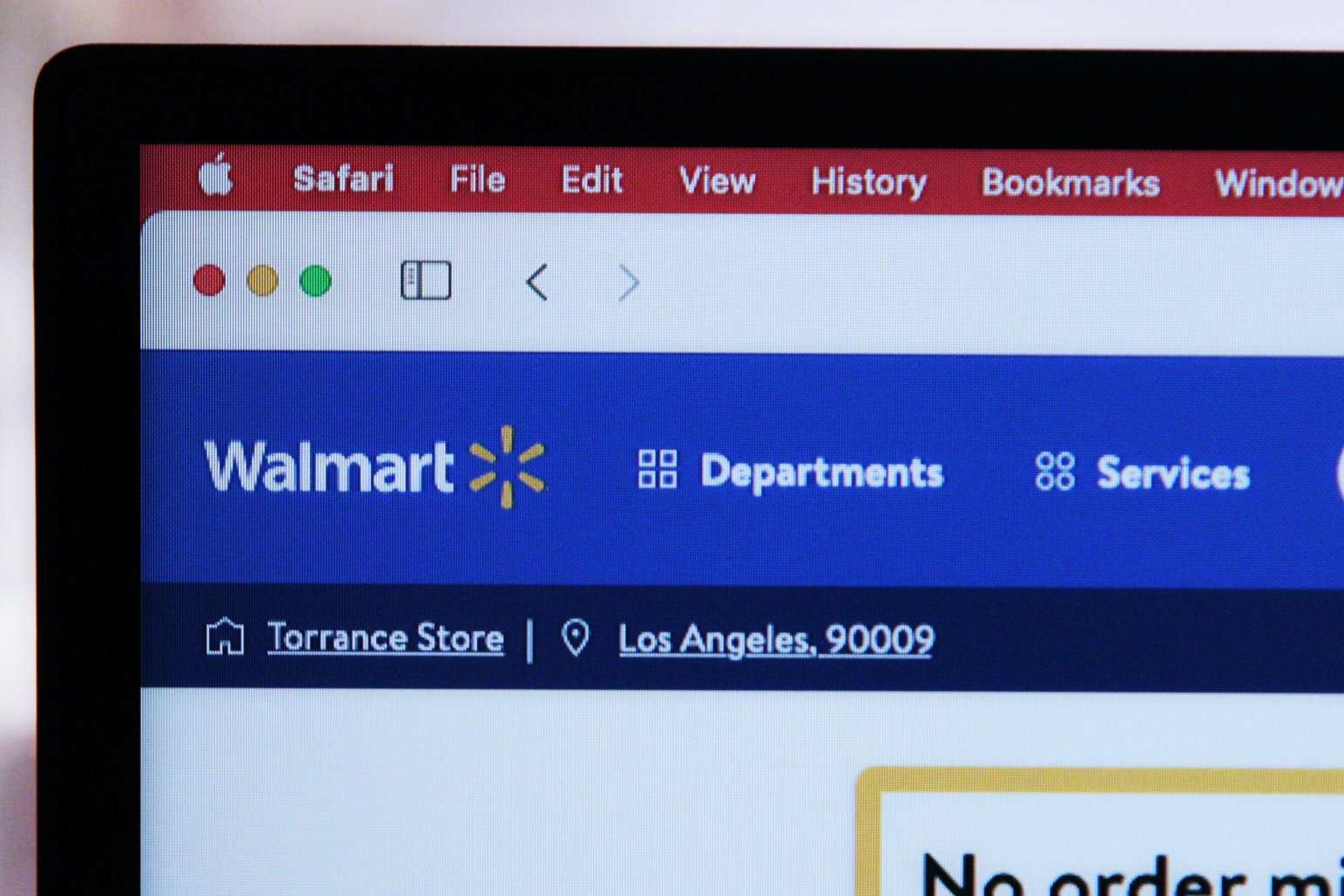Home>Technology and Computers>The Shocking Truth: Why Your IP Address Is Blocked From Accessing Websites And How To Fix It!


Technology and Computers
The Shocking Truth: Why Your IP Address Is Blocked From Accessing Websites And How To Fix It!
Published: February 4, 2024
Discover why your IP address is blocked from accessing websites and learn effective solutions to fix it. Stay informed about technology and computer-related issues.
(Many of the links in this article redirect to a specific reviewed product. Your purchase of these products through affiliate links helps to generate commission for Noodls.com, at no extra cost. Learn more)
Table of Contents
Introduction
Have you ever encountered the frustrating situation where you try to access a website, only to be met with an error message informing you that your IP address has been blocked? It's a maddening experience, leaving you wondering why this has happened and how to resolve it.
IP address blocking is a common security measure implemented by websites and online services to prevent unauthorized access, spamming, or malicious activities. Your IP address serves as a unique identifier for your device on the internet, and when it gets blocked, it can restrict your ability to browse certain websites or use specific online services.
In this article, we will delve into the world of IP address blocking, exploring the reasons behind it, the potential consequences for users, and most importantly, how to overcome this obstacle. Whether you've encountered this issue before or are simply curious about the mechanisms of online security, understanding IP address blocking is crucial in navigating the digital landscape.
So, let's embark on a journey to unravel the mysteries behind IP address blocking and equip ourselves with the knowledge to overcome this common hurdle in the online realm.
Understanding IP Address Blocking
IP address blocking is a defensive mechanism employed by websites and online platforms to regulate access and protect against unauthorized or malicious activities. When a website implements IP address blocking, it essentially denies access to specific IP addresses or ranges of IP addresses. This means that if your IP address falls within the blocked range, you will be unable to access the website or service.
The process of IP address blocking is akin to a digital bouncer, selectively permitting or denying entry based on the source of the request. This can be compared to a club entrance where the bouncer checks IDs to determine who is allowed to enter. Similarly, when you attempt to access a website, the website's server checks your IP address to decide whether to grant or deny access.
IP address blocking can be implemented at various levels, including individual websites, servers, or entire networks. Websites often use this method to thwart unwanted traffic, such as spam, hacking attempts, or unauthorized scraping of content. Additionally, organizations may employ IP address blocking to restrict access to certain online resources or services, ensuring that only authorized individuals or devices can interact with their systems.
Understanding how IP address blocking works is crucial for navigating the complexities of online security. It underscores the significance of IP addresses as unique digital fingerprints that can determine whether you are granted entry into the digital realm or met with a proverbial "access denied" sign. By comprehending this concept, users can gain insights into the mechanisms that govern their online interactions and the potential roadblocks they may encounter.
In the next sections, we will delve deeper into the reasons behind IP address blocking, the repercussions it can have on users, and most importantly, how to circumvent this digital barrier. Let's unravel the intricacies of IP address blocking and equip ourselves with the knowledge to navigate the digital landscape more effectively.
Reasons for IP Address Blocking
IP address blocking is implemented for a myriad of reasons, each serving as a crucial line of defense in the realm of online security. Understanding the underlying motivations behind IP address blocking sheds light on the multifaceted challenges faced by website administrators and organizations in safeguarding their digital assets. Let's explore the primary reasons for IP address blocking:
-
Mitigating Malicious Activities: Websites and online services often fall victim to various forms of cyber threats, including hacking attempts, distributed denial-of-service (DDoS) attacks, and malicious bot traffic. By blocking IP addresses associated with such activities, website administrators can mitigate the risk of security breaches and protect their platforms from unauthorized access or disruptive behavior.
-
Preventing Spam and Unwanted Traffic: Spamming remains a pervasive issue in the digital landscape, inundating websites with unsolicited content and overwhelming server resources. IP address blocking serves as a frontline defense against spammers, preventing their IP addresses from accessing the website and mitigating the impact of spam-related activities on user experience and platform integrity.
-
Enforcing Access Control Policies: Organizations often employ IP address blocking to enforce access control policies, restricting access to sensitive or proprietary resources based on the geographical location or network affiliation of users. This approach allows organizations to fortify their digital perimeters and ensure that only authorized individuals or devices can interact with critical systems and data repositories.
-
Protecting Against Web Scraping and Unauthorized Data Extraction: Web scraping, the automated extraction of data from websites, can pose significant challenges for content providers and online platforms. By blocking IP addresses engaged in scraping activities, websites can safeguard their intellectual property, maintain control over data dissemination, and preserve the integrity of their digital assets.
-
Compliance with Regulatory Requirements: In certain cases, websites and online services may be obligated to adhere to regulatory guidelines that necessitate the restriction of access from specific regions or networks. IP address blocking enables organizations to align with regulatory frameworks, ensuring compliance with data protection laws, content distribution regulations, and other pertinent mandates.
By comprehending the diverse reasons for IP address blocking, users can gain insights into the intricate web of security measures that underpin their online interactions. These reasons underscore the proactive stance adopted by website administrators and organizations in safeguarding their digital ecosystems, reinforcing the importance of robust security protocols in the ever-evolving digital landscape.
Consequences of IP Address Blocking
IP address blocking can have far-reaching consequences for users, impacting their ability to access essential online resources and services. When an IP address is blocked, users may encounter a myriad of frustrating and limiting outcomes, each posing significant challenges in their digital endeavors.
Restricted Access to Websites and Services
The most immediate consequence of IP address blocking is the restriction of access to specific websites and online services. Users whose IP addresses have been blocked find themselves unable to visit the affected websites, access their content, or utilize the associated services. This can be particularly problematic for individuals reliant on these platforms for work, education, communication, or entertainment, effectively impeding their online activities and diminishing their overall digital experience.
Disrupted Workflows and Productivity
For professionals and organizations, IP address blocking can disrupt essential workflows and impede productivity. Imagine being unable to access a critical business application, collaborate on a shared platform, or retrieve vital information due to IP address restrictions. Such impediments can hamper productivity, delay project timelines, and introduce operational inefficiencies, underscoring the tangible impact of IP address blocking on professional endeavors.
Frustration and User Experience Degradation
The frustration stemming from encountering an IP address block can be palpable, tarnishing the overall user experience. Whether attempting to access a favorite streaming service, engage with an online community, or retrieve pertinent information, users are met with a jarring roadblock that impedes their digital interactions. This frustration can erode user satisfaction, diminish trust in the affected platforms, and prompt individuals to seek alternative solutions, thereby disrupting the seamless flow of their online experiences.
Impaired Accessibility for Remote Users
In the context of remote work and global connectivity, IP address blocking can pose significant challenges for individuals operating from diverse geographical locations. Remote workers, expatriates, and travelers may find themselves unable to access essential resources and services due to IP address restrictions, hindering their ability to fulfill professional obligations, stay connected with their communities, or engage in online activities that are integral to their daily lives.
Potential Repercussions for Businesses and Organizations
For businesses and organizations, being subjected to IP address blocking can have profound implications. It can disrupt customer interactions, impede the delivery of digital services, and undermine the accessibility of online resources, potentially impacting revenue streams and customer satisfaction. Furthermore, IP address blocking may inadvertently affect legitimate users and customers, leading to reputational damage and diminished trust in the organization's digital presence.
In essence, the consequences of IP address blocking extend beyond mere access restrictions, permeating various facets of users' digital experiences and organizational operations. By understanding these ramifications, individuals and entities can appreciate the significance of mitigating IP address blocking and implementing proactive measures to navigate the complexities of online security and accessibility.
How to Fix IP Address Blocking
Resolving IP address blocking requires a strategic approach that empowers users to circumvent restrictions and regain access to the affected websites or services. By employing proven methods and leveraging technological solutions, individuals can navigate the challenges posed by IP address blocking and restore the seamless flow of their digital interactions. Here are actionable steps to fix IP address blocking:
1. Utilize a Virtual Private Network (VPN)
A Virtual Private Network (VPN) serves as a powerful tool for bypassing IP address restrictions. By connecting to a VPN server, users can obfuscate their true IP address and assume a different digital identity associated with the VPN server's location. This enables users to circumvent IP-based blocks and access websites or services that were previously inaccessible due to IP address restrictions.
2. Reset Your IP Address
For users encountering IP address blocking on a residential or business network, resetting the IP address can serve as an effective remedy. This can be achieved by power-cycling the network router or contacting the Internet Service Provider (ISP) to request a new IP address assignment. By obtaining a different IP address, users can potentially evade the blocking measures implemented by the affected websites or services.
3. Engage with Customer Support
In instances where IP address blocking is erroneously applied or poses undue limitations on legitimate users, engaging with the customer support teams of the affected websites or services can yield positive outcomes. By communicating the issue and providing relevant details, users can seek assistance in resolving the IP address block, potentially leading to a swift resolution and the restoration of access.
4. Explore Proxy Services
Utilizing proxy services or anonymous web proxies can offer an alternative approach to bypass IP address blocking. These services act as intermediaries, allowing users to access websites through the proxy server's IP address. By leveraging proxy services, users can navigate around IP-based restrictions and access the desired content or services without being hindered by the original IP address block.
5. Consider IP Address Whitelisting
In scenarios where users require consistent access to specific websites or services, reaching out to the administrators or support teams to request IP address whitelisting can be a viable solution. By having their IP addresses added to the whitelist, users can ensure uninterrupted access to the designated resources, circumventing potential IP address blocking measures.
By implementing these proactive strategies, users can effectively address IP address blocking and reclaim their ability to engage with essential websites and online services. These approaches underscore the resilience and adaptability of individuals in navigating the intricacies of online security, reinforcing the notion that technological barriers can be surmounted through informed and strategic actions.
Conclusion
In conclusion, the prevalence of IP address blocking underscores the critical role of security measures in shaping the digital landscape. By unraveling the intricacies of IP address blocking, we have gained valuable insights into the multifaceted reasons behind this practice, the potential repercussions for users, and the actionable strategies to mitigate its impact.
The reasons for IP address blocking, ranging from mitigating malicious activities to enforcing access control policies, underscore the proactive stance adopted by website administrators and organizations in safeguarding their digital ecosystems. This proactive stance is essential in navigating the ever-evolving landscape of cyber threats and ensuring the integrity of online platforms.
The consequences of IP address blocking extend beyond mere access restrictions, permeating various facets of users' digital experiences and organizational operations. From restricted access to disrupted workflows and potential repercussions for businesses, the impact of IP address blocking underscores the need for proactive solutions to address this challenge.
However, amidst the challenges posed by IP address blocking, the actionable strategies presented in this article offer a beacon of hope for users seeking to regain access to essential websites and services. Whether through the utilization of VPNs, engagement with customer support, or exploration of proxy services, individuals can navigate around IP-based restrictions and restore the seamless flow of their digital interactions.
Ultimately, the journey through the realm of IP address blocking serves as a testament to the resilience and adaptability of individuals in the face of technological barriers. By understanding the mechanisms of IP address blocking and embracing proactive solutions, users can fortify their digital experiences and navigate the complexities of online security with confidence and efficacy. As we continue to traverse the ever-evolving digital landscape, the knowledge and strategies elucidated in this exploration will serve as invaluable assets in overcoming the challenges posed by IP address blocking and fostering a more secure and accessible online environment.












